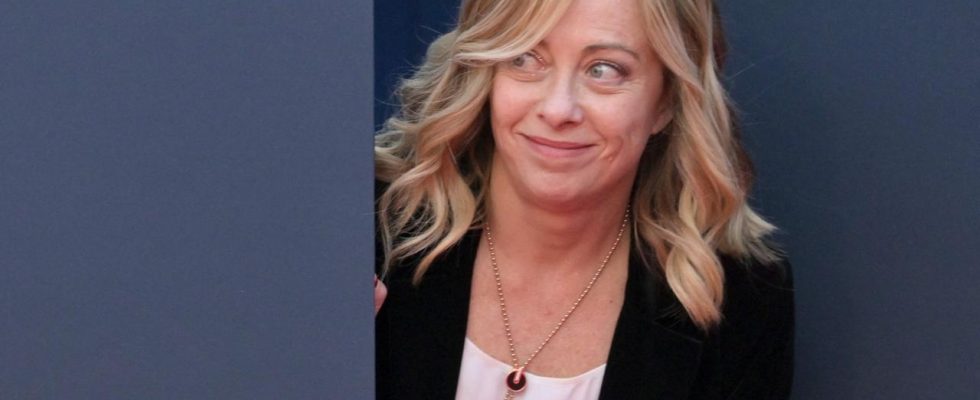Italy has taken over the presidency of the G7 group of leading democratic industrial nations. Prime Minister Meloni wants to use this to make a name for herself in foreign policy – and to put migration on the agenda.
The location of the summit is a symbol: the heads of state and government of the seven most important democratic industrialized countries are scheduled to meet in Puglia in southern Italy in June – a region, says Prime Minister Giorgia Meloni, that is symbolic of a goal that the Italian G7 presidency is pursuing. “Puglia has a special symbolic meaning due to its geographical position.” Over the centuries, this area has “often performed the function of a bridge between the Occident and the Orient.”
More presence in Africa
At the G7 summit in Apulia, bridges will also be built under Italy’s chairmanship, Meloni announces – from the democratic-industrial West to the states of Asia and Africa. The right-wing politician wants to focus on one topic: migration.
This, Meloni announces, is one of the areas “that we will bring to the center of the G7”. Related to this would be “attention to Africa”. There have been “some regrettable oversights” here in the past. She is convinced, says Meloni, with a view to her G7 presidency, “that Europe – and not just Europe – must be more present in and more cooperative with Africa.”
Meloni has pushed for international anti-migration agreements with African states several times in recent months. In her own country, the Prime Minister is under pressure when it comes to immigration. The number of migrants arriving in Italy has risen sharply under Meloni. During the election campaign she propagated a hard line. Since taking office, the leader of the Brothers of Italy party has been campaigning for more support from the European Union.
Asylum procedures outside the Union
Now she wants to put the issue of migration at the top of the agenda in the G7 round. “Above all, it will try to use it to gain its image and to confirm its previous international recognition,” says politics professor Giovanni Orsina from Rome’s Luiss University, assessing Meloni’s G7 ambitions. In addition, she will strive to advance “two or three issues that are particularly important to Italy, such as immigration.”
Meloni has not yet presented any concrete proposals on the subject of migration for Italy’s G7 year. Last week, the head of government had to cancel her planned annual press conference for the second time due to illness.
In the fall, Meloni caused a stir with an agreement with Albania that would enable Italy to carry out asylum procedures outside the European Union for the first time. An Albanian court has initially put the agreement on hold, but Meloni is still expected to seek support for her line within the G7.
Meloni strives for recognition
Italy’s head of government publicly announced that she wanted to work in the G7 presidency to ensure that all member states reaffirm their help for Ukraine. Global energy security will also play a role in Italy’s G7 year. Added to this is the conflict in the Middle East.
For Meloni, the G7 presidency also has great personal significance. The right-wing politician, who began her career in a neo-fascist organization, has now been at the head of the most important democratic industrial states for a year.
The G7 presidency, says politics professor Orsina, is an opportunity for Meloni to further raise his profile in foreign policy. “The impression is that Meloni also wants to use the G7 chairmanship for his own benefit.” From the outset, Orsina says, she pursued “a very constructive strategy to legitimize herself” at the international level. In general, Meloni feels more comfortable on a non-European level than in the European area. Therefore, believes the Roman politics professor, “the G7 is an ideal showcase for them.”
Good pictures should also be guaranteed at the summit in Apulia in June. The meeting will take place in the luxury holiday resort Borgo Egnazia.
Jörg Seisselberg, ARD Rome, tagesschau, January 1st, 2024 5:18 p.m

